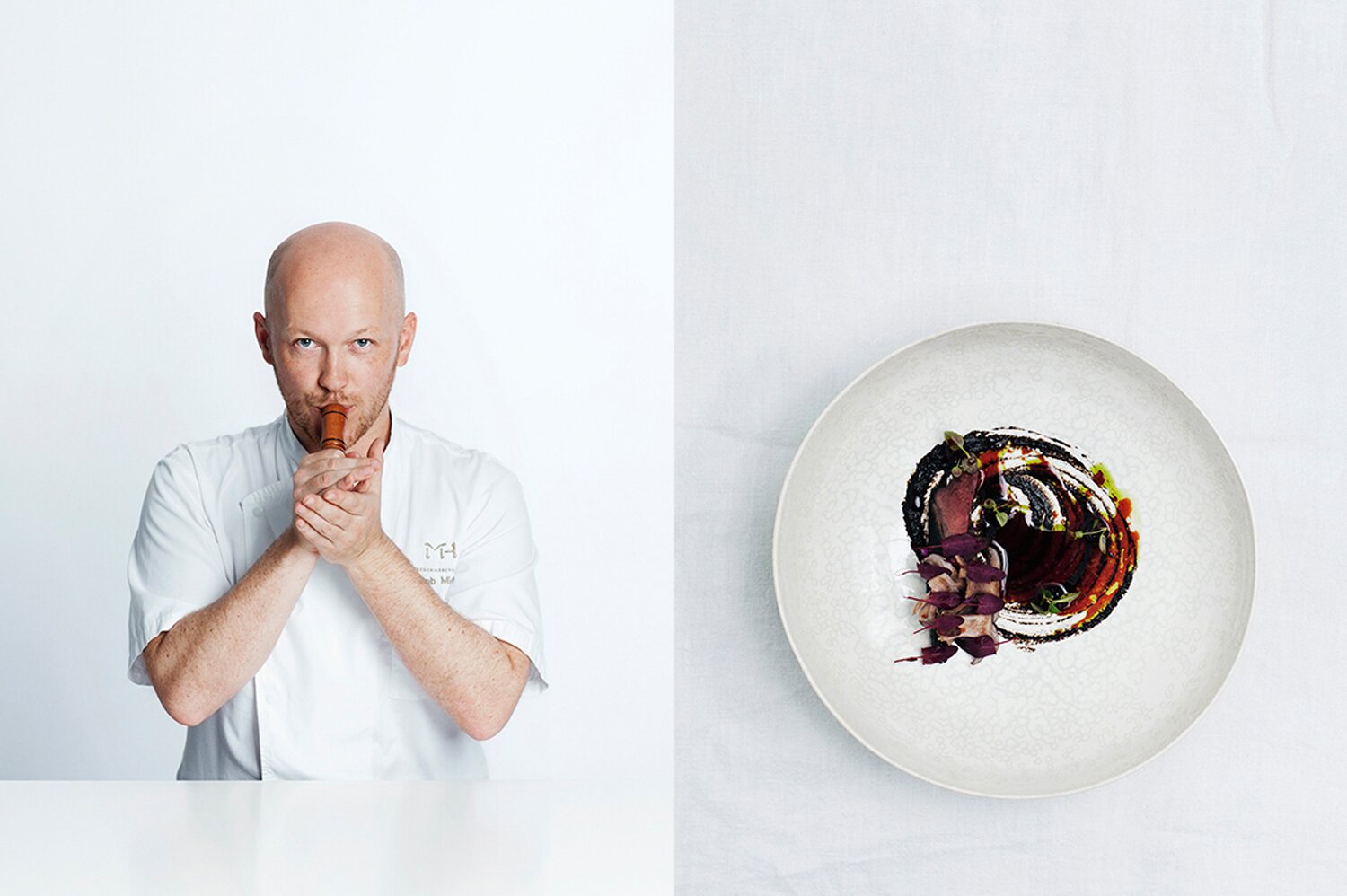Bo Lindegaard:
“Since the 17th century chefs have presented food on plates and have served starters, main courses, and desserts for their guests. Why not challenge that tradition a wee bit? I like to surprise my guests, because when we’re surprised, we’re very much present in the moment. Suddenly we take part in a shared experience that we can build upon in the conversations that meals ideally should provide the framework for.
When I serve my stock cube, the guests need to add boiling water and stir the cups themselves. This interaction with the audience is important. They see the cube dissolve, they see the steam and feel the aromas – and maybe they wonder. Then they taste their broth and realize it tastes amazing. Now they have something to talk about besides the weather. I want to contest the idea that everything in a restaurant has to be under total control. That doesn’t mean that we’re trying to be some stupid-ass, buffoonish cook’s college, but I’d like it if the guest played a bigger role in the proceedings, instead of just being submitted to a bunch of fancy French words on the menu. To me it’s a huge success when the guests ask for the recipe afterwards, because they want to bring the bouillon along on their camping trip to have something nice to eat after canoeing all day or whatever.
The bouillon is a small serving with an intense flavour. There’s nothing uniquely fascinating about that. It looks so simple, but of course it isn’t. We’ve worked on the three types we offer for six months. I had to find out which ingredients can be dissolved in water without muddying everything up. I don’t want a kind of green tea experience, where you end up with a mouthful of herbal residue. The soup needs to be delicious, so it’s not just a matter of blending stuff, compacting it, and pouring water on it. I think we’ve managed to come up with a fluid, yet intensely flavoured product. And actually it was our trainee who put the final touch on it. We couldn’t really get the ingredients to stick together in a cubic shape; it all just crumbled. Then he simply suggested that we use butter instead of olive oil. Of course! Sometimes you fail to see the most obvious solution when you’re engrossed in a creative process.”
 Bo Lindegaard at I´m A Kombo
Bo Lindegaard at I´m A Kombo
